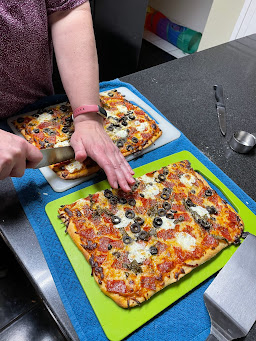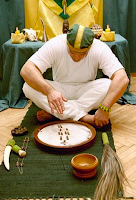Cooking and Community: Looking at Taste as a Communal Experience

Cooking and Community: Looking at Taste as a Communal Experience By Olivia Modica When I personally think of food and taste I think of the community beyond it. There are so many ways this can apply to life from the communal experience of eating at a restaurant to the community driven experience of eating with family or friends on a holiday. We look to not only what we are eating but who we are choosing to eat with. The experience of food and tasting can be impacted both by what we choose to eat with. For me personally, there are even foods I find I’ll only eat around certain people because they are who are important to me and I tend to associate those foods with them. For example, I associate my college friends with Domino’s because it tends to be something we all pitch in for together when we’re up late. Communal eating and cooking can be seen in many other cultures, however the one we talked about the most was West African traditions, especially revolving around Ori...







